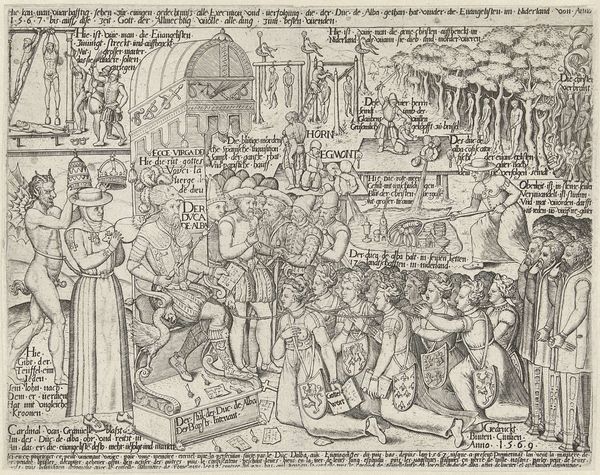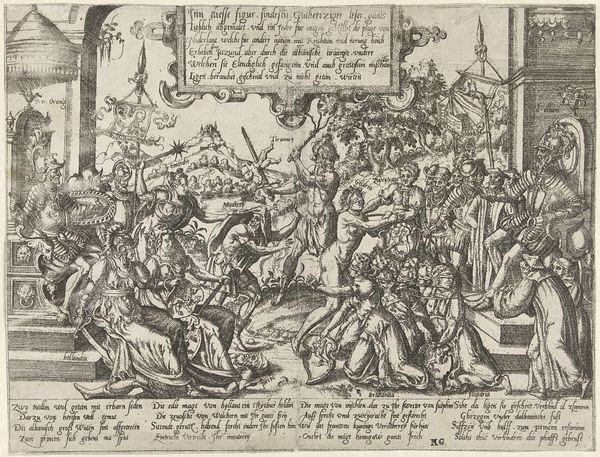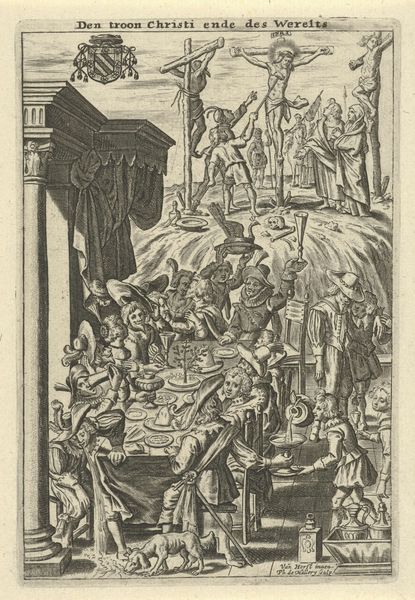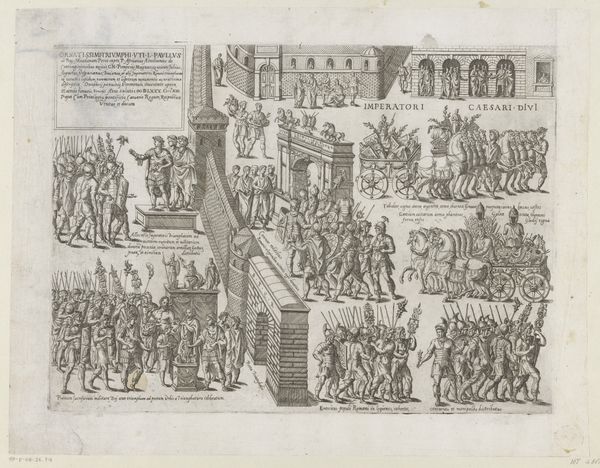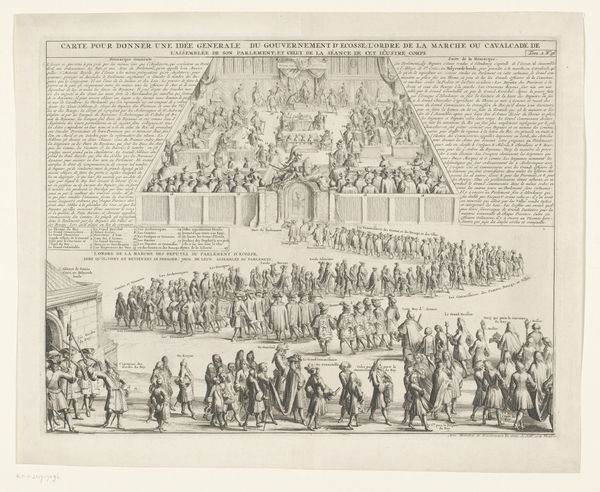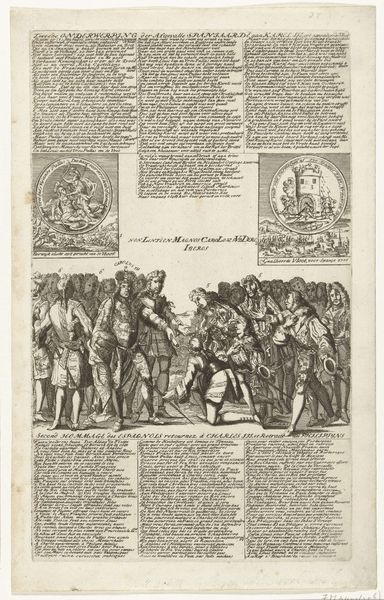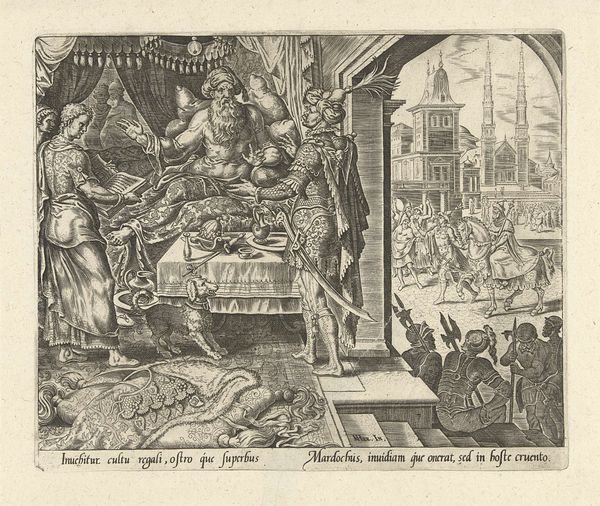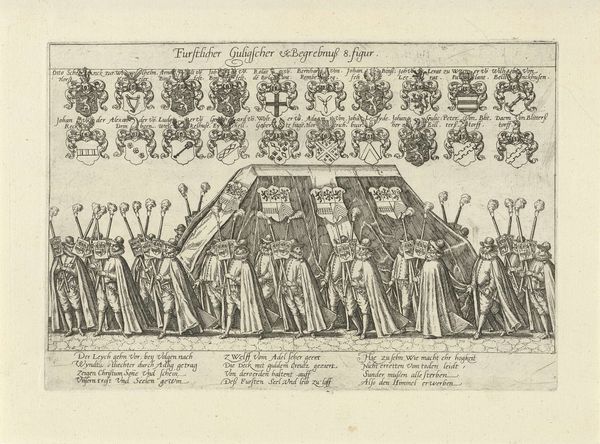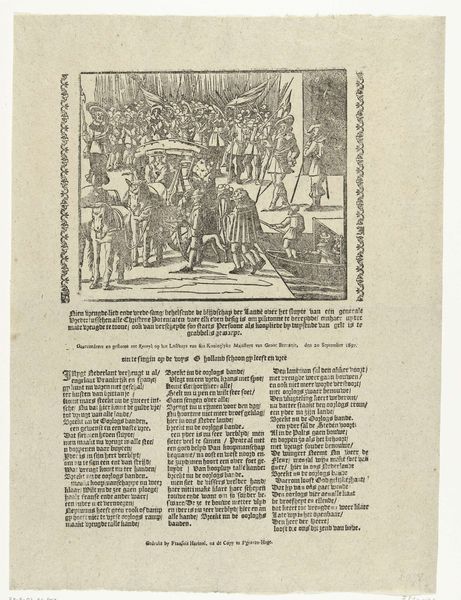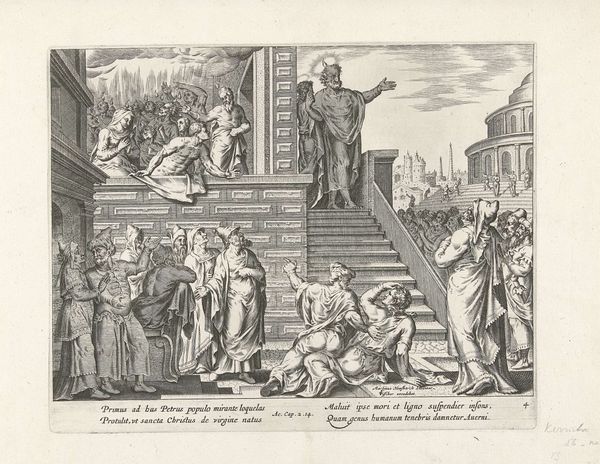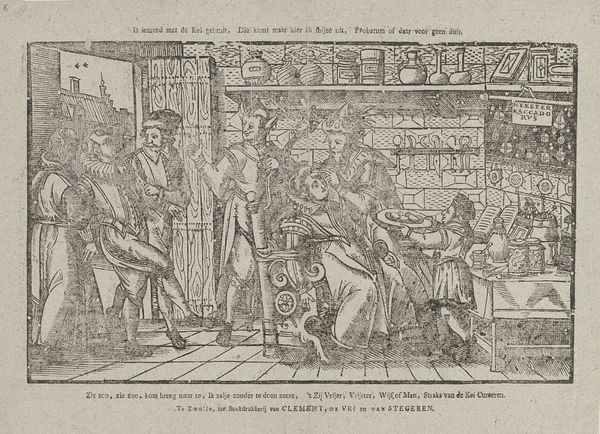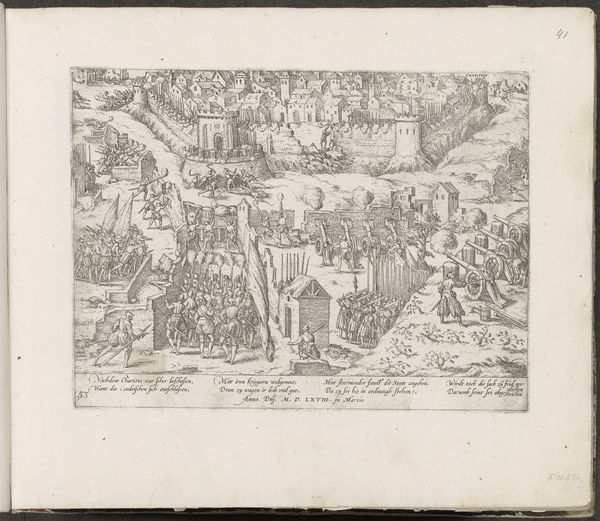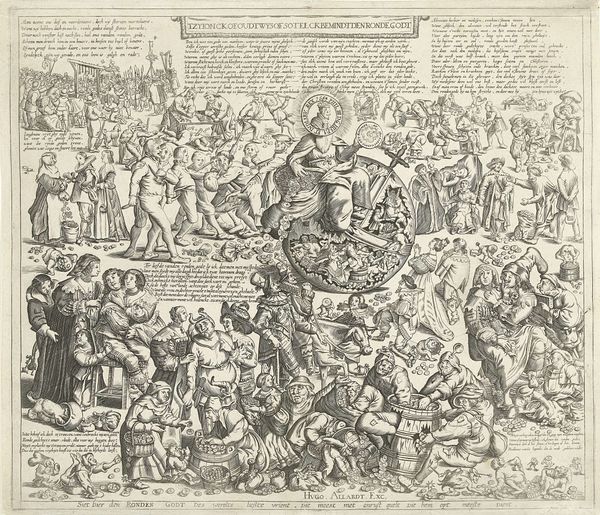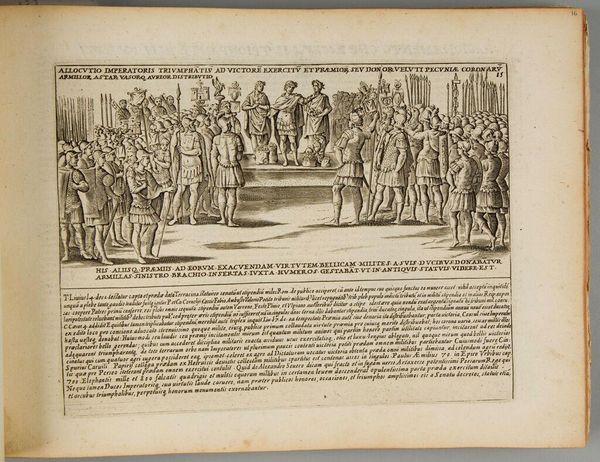
print, etching, engraving
#
medieval
#
narrative-art
# print
#
etching
#
11_renaissance
#
history-painting
#
engraving
Dimensions: height 237 mm, width 290 mm
Copyright: Rijks Museum: Open Domain
This woodcut, made in 1569 by an anonymous artist, depicts the Duke of Alba's reign of terror in the Netherlands. The image creates meaning through visual codes that would have been easily read at the time. Executions, torture, and the confiscation of property were the instruments used to terrify the population into obedience. This reflects a society in upheaval. The northern provinces of the Netherlands were in open revolt against Spanish rule due to religious persecution and heavy taxation. Alba was sent to crush the rebellion. The print is overtly Protestant, as can be seen in its harsh depiction of Catholic clergy. It served a political purpose, aiming to bolster resistance against the Spanish authorities. Understanding this artwork involves research into the history of the Dutch Revolt and the religious conflicts of the 16th century. By considering this context, we can better understand the artwork’s meaning as a product of social and political conflict.
Comments
No comments
Be the first to comment and join the conversation on the ultimate creative platform.
